
Tauranga: New Zealand's Coastal Gem
Tauranga, located in the Bay of Plenty region on the North Island of New Zealand, is a stunning coastal city known for its vibrant harbor, beautiful beaches, and warm climate. As one of the fastest-growing cities in New Zealand, Tauranga offers a harmonious blend of urban sophistication and natural beauty, making it a fantastic destination for tourists. The city is renowned for its picturesque waterfront, where you can enjoy a leisurely stroll along the Strand, lined with cafes, restaurants, and shops. Tauranga's harbor is a bustling hub of activity, with opportunities for sailing, fishing, and dolphin-watching tours. The nearby Mount Maunganui, affectionately known as 'The Mount,' is a must-visit. This iconic landmark offers hiking trails with panoramic views of the coastline and the Pacific Ocean. Tauranga is also rich in history and culture. Visit the Elms Mission Station to step back in time and learn about the city's early European settlers. The vibrant art scene, with numerous galleries and cultural events, adds to the city's charm. For a taste of local produce, head to the Tauranga Farmers Market, where you can sample delicious fruits, vegetables, and artisanal products. The region's natural attractions are equally captivating. Explore the lush Kaimai Mamaku Forest Park, ideal for hiking and bird-watching. Tauranga's proximity to other Bay of Plenty attractions, such as Rotorua's geothermal wonders and the stunning Coromandel Peninsula, makes it a perfect base for exploring the wider area.
Local tips in Tauranga
- Visit The Mount early in the morning for fewer crowds and stunning sunrise views.
- Check out the Tauranga Farmers Market on Saturdays for fresh local produce and unique artisanal goods.
- Use the local bus service to explore different parts of the city conveniently and affordably.
- Book dolphin-watching tours in advance, especially during peak tourist season.
- Bring comfortable walking shoes for exploring the city's many parks and hiking trails.
Tauranga: New Zealand's Coastal Gem
Tauranga, located in the Bay of Plenty region on the North Island of New Zealand, is a stunning coastal city known for its vibrant harbor, beautiful beaches, and warm climate. As one of the fastest-growing cities in New Zealand, Tauranga offers a harmonious blend of urban sophistication and natural beauty, making it a fantastic destination for tourists. The city is renowned for its picturesque waterfront, where you can enjoy a leisurely stroll along the Strand, lined with cafes, restaurants, and shops. Tauranga's harbor is a bustling hub of activity, with opportunities for sailing, fishing, and dolphin-watching tours. The nearby Mount Maunganui, affectionately known as 'The Mount,' is a must-visit. This iconic landmark offers hiking trails with panoramic views of the coastline and the Pacific Ocean. Tauranga is also rich in history and culture. Visit the Elms Mission Station to step back in time and learn about the city's early European settlers. The vibrant art scene, with numerous galleries and cultural events, adds to the city's charm. For a taste of local produce, head to the Tauranga Farmers Market, where you can sample delicious fruits, vegetables, and artisanal products. The region's natural attractions are equally captivating. Explore the lush Kaimai Mamaku Forest Park, ideal for hiking and bird-watching. Tauranga's proximity to other Bay of Plenty attractions, such as Rotorua's geothermal wonders and the stunning Coromandel Peninsula, makes it a perfect base for exploring the wider area.
When is the best time to go to Tauranga?
Iconic landmarks you can’t miss
Memorial Park
Discover the natural beauty and historical significance of Memorial Park, a serene oasis in the heart of Tauranga, perfect for relaxation and recreation.
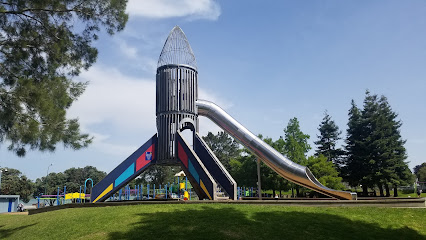
The Historic Village
Discover the charm of The Historic Village in Tauranga, where history, art, and community blend beautifully in a vibrant cultural experience.
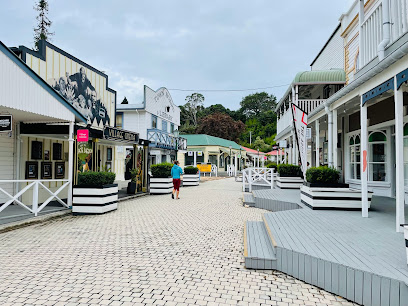
Kaiate Falls
Experience the breathtaking beauty of Kaiate Falls, a must-visit natural landmark in Waitao, New Zealand, perfect for nature lovers and photographers.
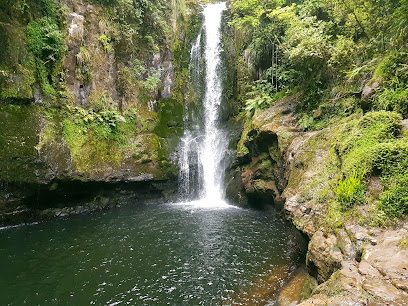
Kulim Park
Experience the tranquility of Kulim Park in Tauranga, a perfect blend of lush landscapes and recreational activities for all ages.
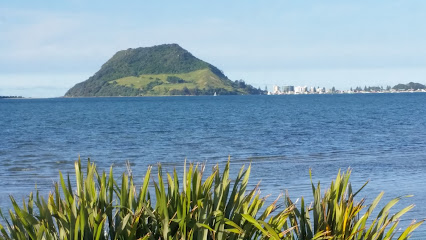
Trinity Wharf Tauranga
Experience luxury at Trinity Wharf Tauranga, where stunning waterfront views meet top-notch hospitality and exquisite dining for your ultimate getaway.

McLaren Falls Park
Explore the stunning natural landscapes and diverse wildlife at McLaren Falls Park, a top destination for nature lovers and outdoor enthusiasts in New Zealand.
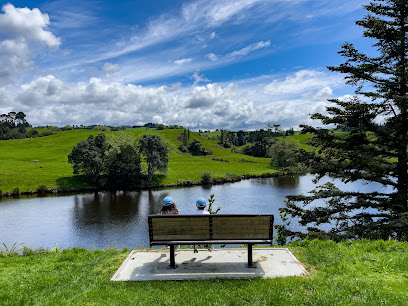
Te Puna Quarry Park & venue 'The Gallery'
Experience the serene beauty of Te Puna Quarry Park, a unique blend of nature and sculpture in New Zealand's stunning landscapes.
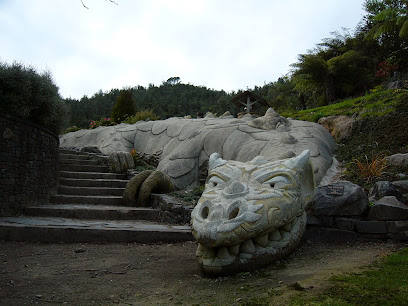
Salva D'or Italian Restaurant & Pizzeria
Experience authentic Italian cuisine at Salva D'or, Tauranga's premier pizzeria and restaurant, offering a delightful menu in a warm atmosphere.
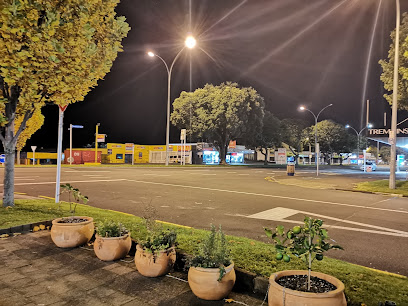
Waimarino Water & Adventure Park
Discover the ultimate adventure at Waimarino Water & Adventure Park, where fun meets nature in Tauranga's premier amusement destination.
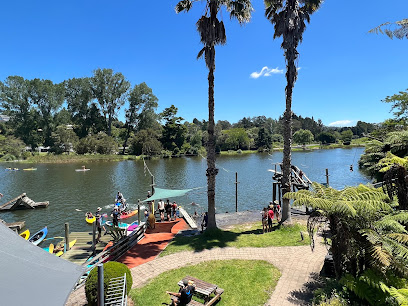
Tauranga Art Gallery POP UP
Explore Tauranga Art Gallery POP UP for a unique artistic experience, showcasing contemporary works and engaging community events in New Zealand's vibrant art scene.
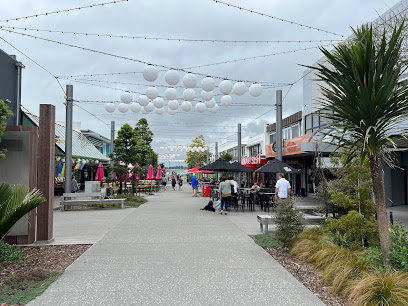
DOCA cafe & eatery
Experience the culinary delight of DOCA Cafe & Eatery in Tauranga, where breakfast, brunch, and pizza come together in a vibrant atmosphere.
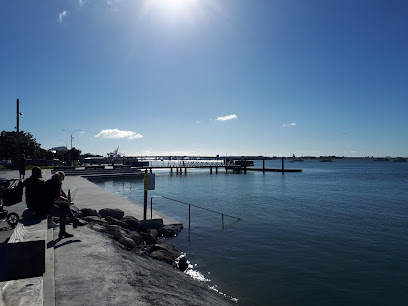
Baycourt Community & Art Centre
Discover the artistic heart of Tauranga at Baycourt Community & Art Centre, where culture, creativity, and community come together in stunning performances and events.
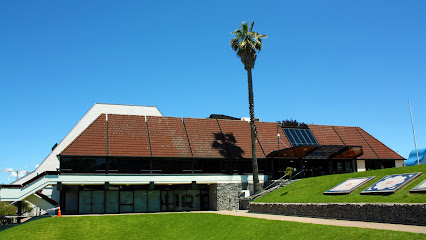
Hairy Maclary and Friends Sculpture
Explore the Hairy Maclary and Friends Sculpture in Tauranga - a vibrant tribute to New Zealand's beloved children's character, perfect for family fun and artistic enjoyment.
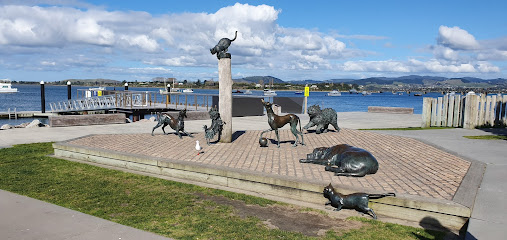
The Redoubt Bar and Eatery
Discover delightful local cuisine at The Redoubt Bar and Eatery in Tauranga, where flavor meets friendly service in a vibrant atmosphere.
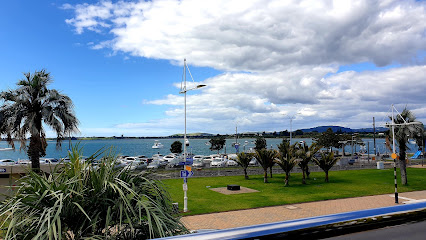
The Hop House
Experience the best of Tauranga dining at The Hop House, where great food meets an exceptional waterfront view.
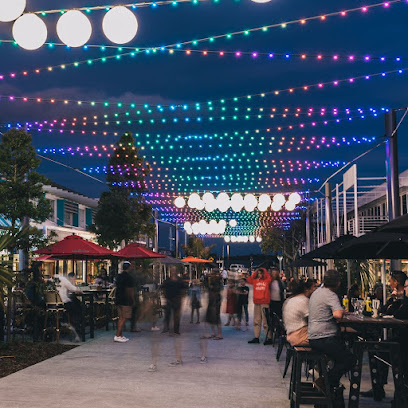
Unmissable attractions to see
Hobbiton™ Movie Set Tours
Explore the enchanting Hobbiton™ Movie Set in Matamata, New Zealand, where film magic comes to life amidst stunning landscapes.
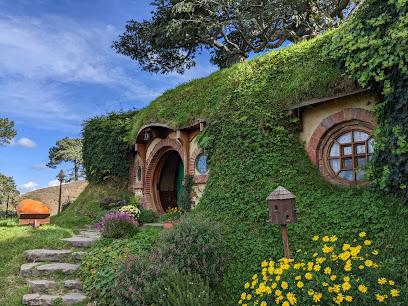
Mauao / Mount Maunganui summit
Discover Mauao, the iconic volcanic cone of Mount Maunganui, offering stunning hikes, breathtaking views, and rich Māori heritage in New Zealand's coastal paradise.
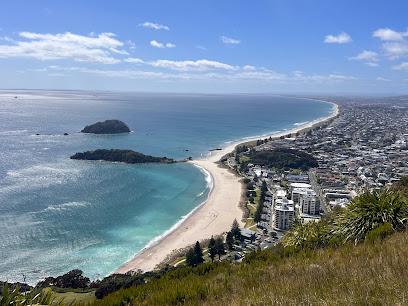
Hell's Gate Geothermal Reserve and Mud Spa
Explore the stunning geothermal wonders and indulge in rejuvenating mud spa treatments at Hell's Gate in Rotorua, New Zealand.
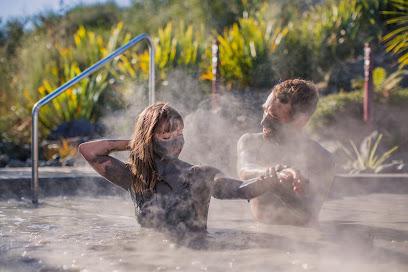
Rotorua Canopy Tours
Explore the breathtaking beauty of New Zealand's native forests with an unforgettable ziplining experience at Rotorua Canopy Tours.
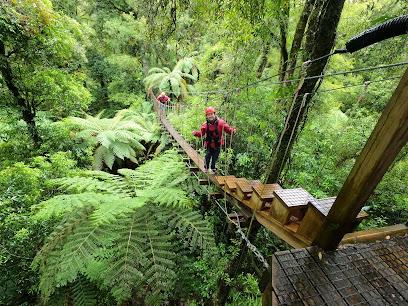
Skyline Rotorua
Discover the adventure and stunning views at Skyline Rotorua, where excitement meets culinary delights in the heart of New Zealand.

Memorial Park
Discover the beauty and serenity of Memorial Park in Tauranga, a perfect destination for relaxation, recreation, and reflection amidst stunning landscapes.
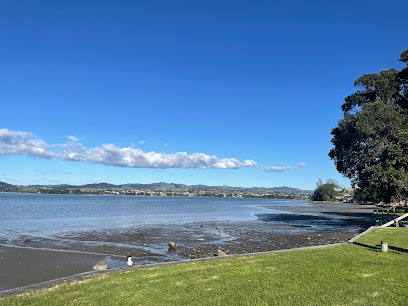
Matamata isite Visitor Information Centre
Explore Matamata's enchanting Hobbiton at the i-SITE Visitor Information Centre - your gateway to adventure and local treasures.
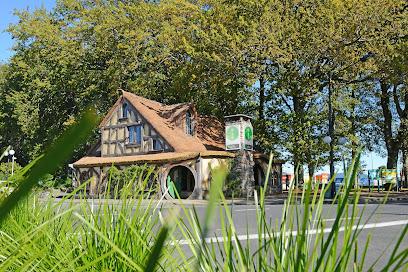
Paradise Valley Springs
Discover the wildlife wonderland of Paradise Valley Springs, where nature, native animals, and stunning landscapes create unforgettable experiences.
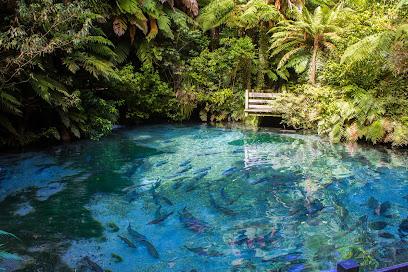
ZORB™ Rotorua
Discover the thrill of ZORB™ Rotorua, where adventure meets breathtaking landscapes in New Zealand's stunning Fairy Springs.
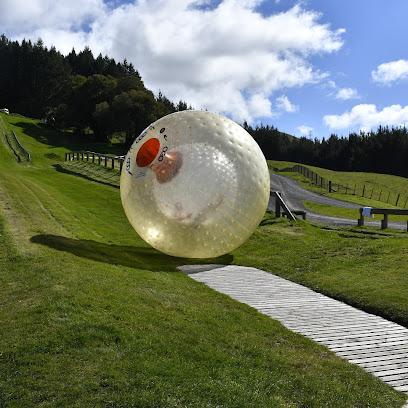
Mitai Maori Village
Discover the heart of Maori culture at Mitai Maori Village—where tradition meets performance in the breathtaking Rotorua landscape.
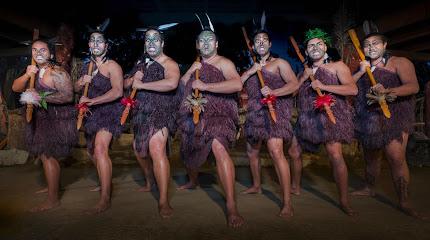
Kaituna Cascades- White Water Rafting
Experience thrilling white-water rafting at Kaituna Cascades, New Zealand's top adventure destination with stunning scenery and expert guides.
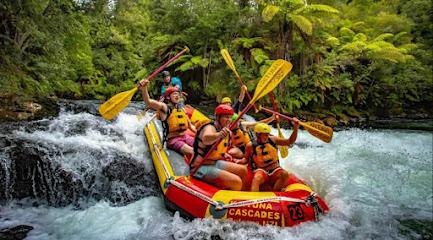
Rotorua Rafting
Experience the thrill of white-water rafting at Rotorua Rafting, where adventure meets stunning natural beauty in New Zealand's breathtaking landscape.
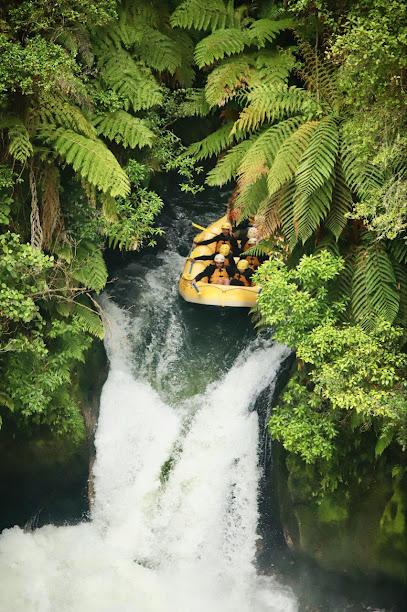
Mount Hot Pools
Discover ultimate relaxation at Mount Hot Pools, where soothing mineral waters meet stunning coastal views in Mount Maunganui.
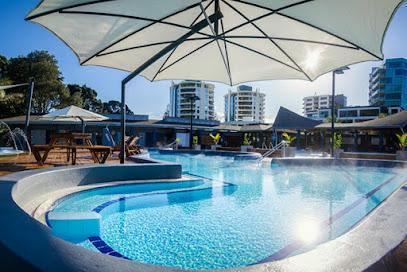
Te Aroha Mineral Spas
Discover tranquility and natural healing at Te Aroha Mineral Spas, New Zealand's premier destination for relaxation and wellness.
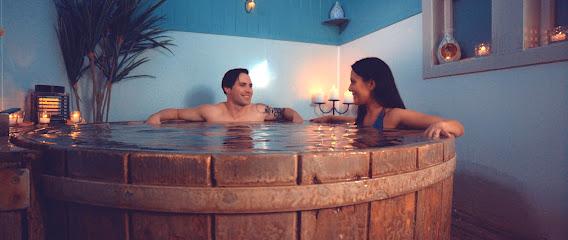
Kaiate Falls
Discover the breathtaking beauty of Kaiate Falls, a stunning waterfall in Waitao, New Zealand, surrounded by lush forests and serene walking trails.
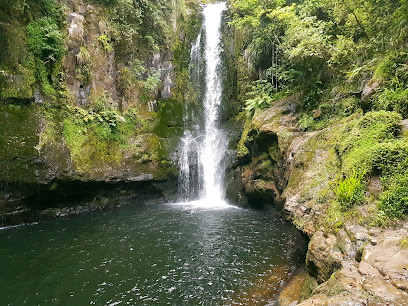
Essential places to dine
Latitude 37
Experience culinary excellence at Latitude 37 in Mount Maunganui - where local flavors meet coastal charm.
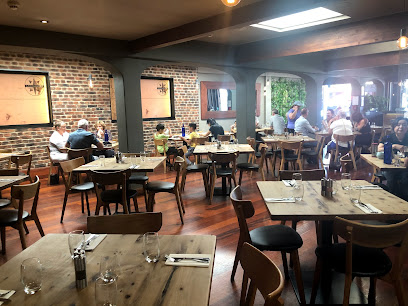
Harbourside
Experience exquisite dining at Harbourside in Tauranga with stunning views and fresh local flavors that celebrate New Zealand's coastal cuisine.
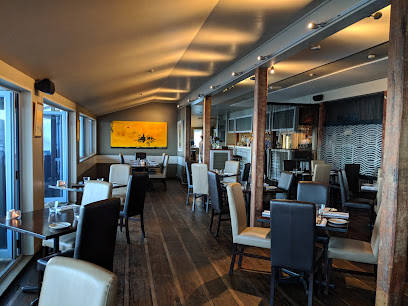
The Phoenix
Experience the best of Tauranga's dining scene at The Phoenix - where modern cuisine meets a vibrant gastropub atmosphere.
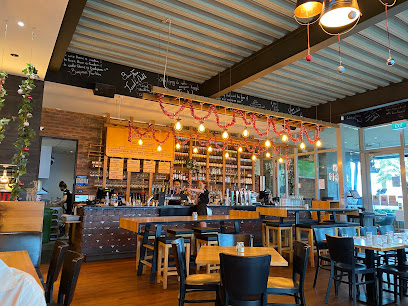
Lone Star Tauranga
Discover Lone Star Tauranga – where American comfort food meets Kiwi charm in a vibrant setting perfect for families and friends.
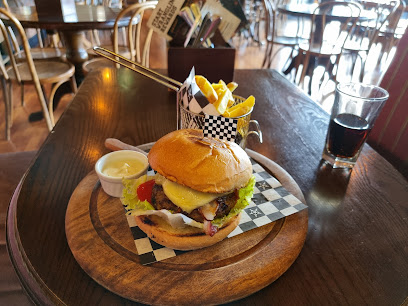
CBK Craft Bar & Kitchen Tauranga
Experience the best of Tauranga's culinary scene at CBK Craft Bar & Kitchen, where fresh ingredients meet innovative flavors.
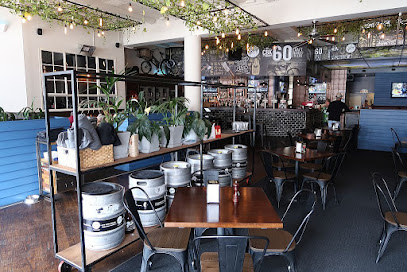
Nautilus Buffet Restaurant & Bar
Experience culinary delight at Nautilus Buffet Restaurant & Bar in Tauranga - A diverse buffet offering local and international flavors in a warm ambiance.
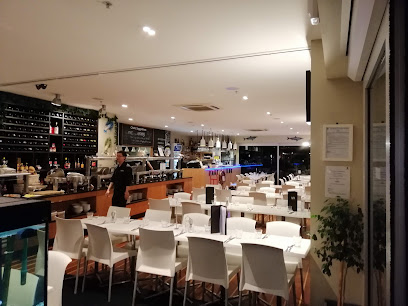
Worlds End
Discover culinary delights at Worlds End in Tauranga – where exceptional flavors meet a welcoming atmosphere.
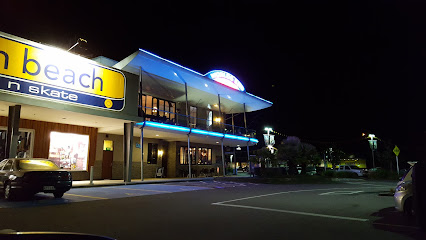
BurgerFuel Tauranga
Discover BurgerFuel Tauranga: where gourmet burgers meet local flavor in a vibrant setting.
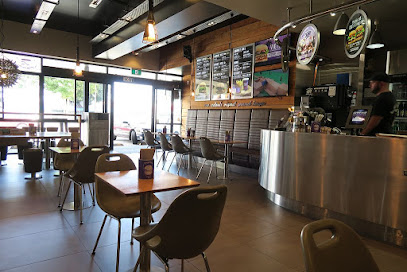
Great Spice Indian Restaurant
Experience authentic Indian flavors at Great Spice Indian Restaurant in Tauranga - perfect for vegetarians and halal dining enthusiasts.
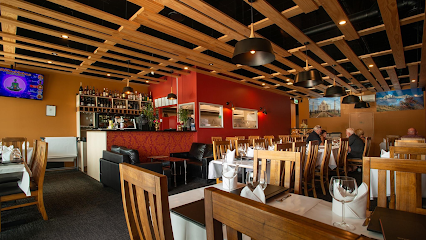
The Orchard
Experience delightful dining at The Orchard in Bethlehem – where local flavors meet warm hospitality in a charming atmosphere.
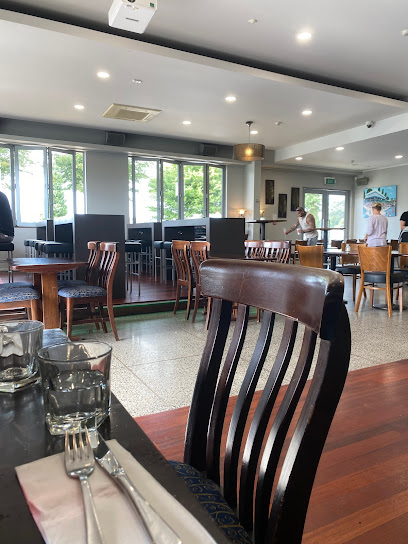
Tauranga Citizens Club
Experience exceptional dining and vibrant community spirit at Tauranga Citizens Club – where great food meets friendly faces.
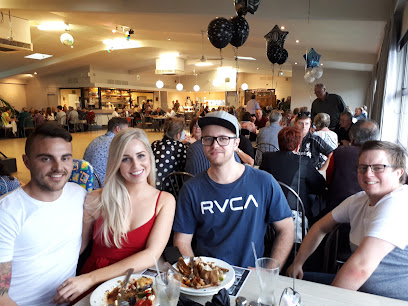
The Barrio Brothers Tauranga
Experience authentic Mexican cuisine at The Barrio Brothers Tauranga - vibrant flavors in a lively setting await you!
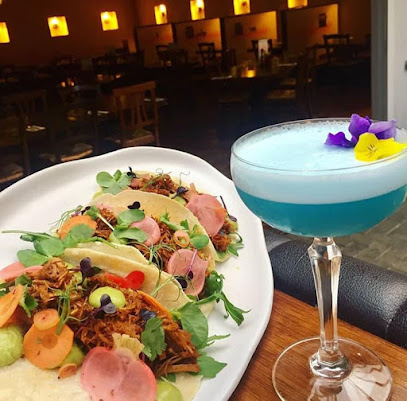
Oaktree Restaurant
Discover the charm of Oaktree Restaurant in Tauranga—where delicious buffet dining meets family-friendly hospitality.
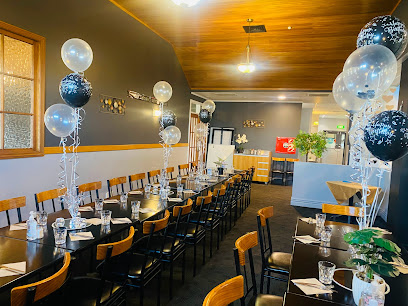
Gengy's Restaurant Tauranga
Discover the vibrant flavors of Mongolian barbecue at Gengy's Restaurant Tauranga – perfect for families seeking a fun dining adventure.
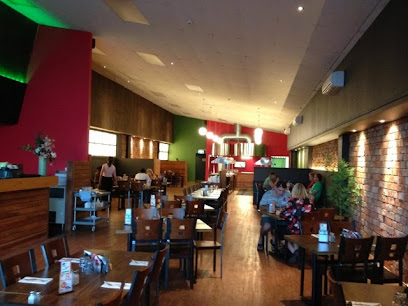
Salva D'or Italian Restaurant & Pizzeria
Experience authentic Italian flavors at Salva D'or Restaurant & Pizzeria in Tauranga - where every meal feels like a celebration!
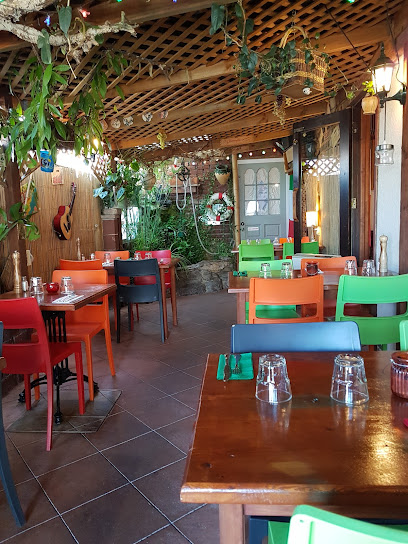
Markets, malls and hidden boutiques
Bethlehem Town Centre
Experience the unique blend of shopping, dining, and community at Bethlehem Town Centre in Tauranga, New Zealand.
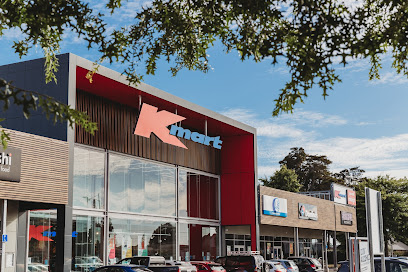
Fraser Cove Shopping Centre
Discover a diverse shopping experience at Fraser Cove Shopping Centre in Tauranga, featuring a wide array of stores and delightful dining options.
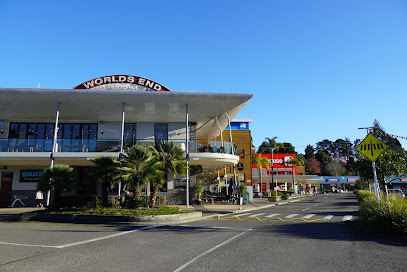
Tauranga Crossing
Discover Tauranga Crossing, a vibrant shopping mall offering diverse retail, dining, and entertainment experiences in the heart of Tauranga, New Zealand.
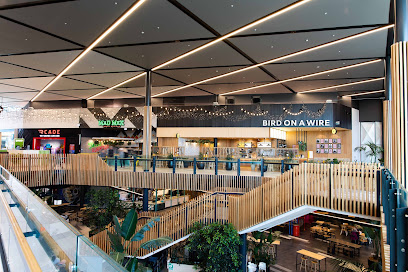
Bay Central Shopping Centre
Explore Bay Central Shopping Centre in Tauranga for a blend of shopping, dining, and local culture in a vibrant atmosphere.
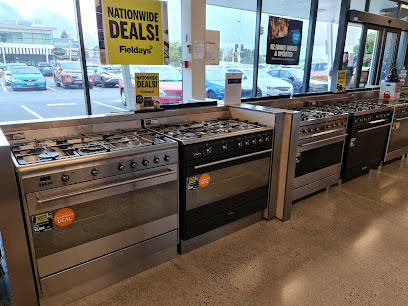
Tauranga Downtown
Explore Tauranga Downtown, a unique blend of shopping and park spaces in the heart of New Zealand's coastal paradise.
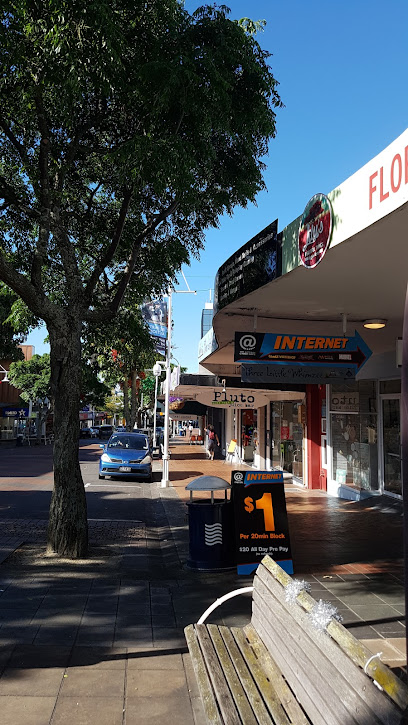
Kathmandu Tauranga CBD
Discover outdoor adventure gear at Kathmandu Tauranga CBD, your ultimate destination for quality clothing and equipment in Tauranga.
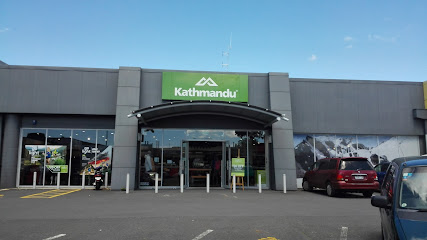
Books A Plenty
Discover hidden literary treasures at Books A Plenty, Tauranga's charming bookshop offering a warm atmosphere and a rich selection of books.
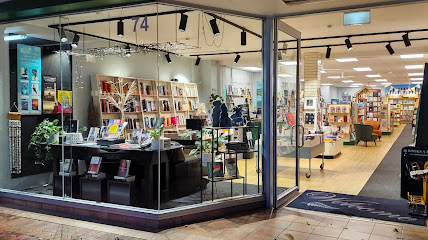
The Salvation Army Tauranga Family Store
Explore The Salvation Army Tauranga Family Store for unique thrift finds and support local charities while you shop.
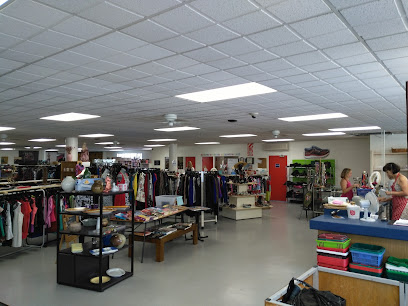
Bivouac Outdoor Tauranga
Discover the ultimate outdoor sports store in Tauranga, offering top-notch gear, clothing, and expert advice for every adventure.
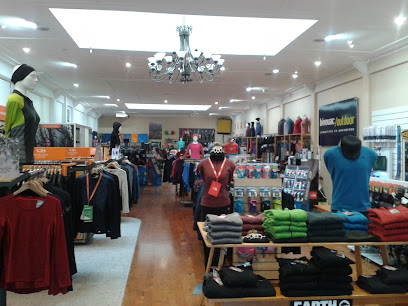
Wendys Boutique - Women's Fashion
Explore Wendy's Boutique in Tauranga for chic women's fashion and personalized shopping experiences that celebrate your unique style.
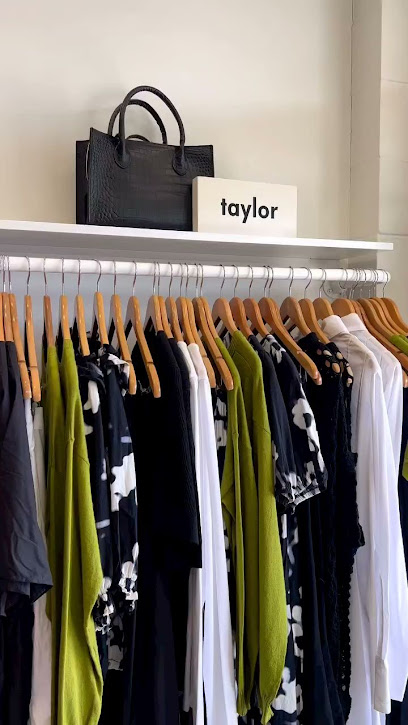
Taking Shape Tauranga
Explore stylish plus-size fashion at Taking Shape Tauranga – where confidence meets contemporary design in a welcoming boutique atmosphere.

Tallulah Quality Recycled Clothing Boutique
Explore sustainable fashion at Tallulah Quality Recycled Clothing Boutique in Bethlehem, Tauranga - where style meets eco-conscious living.
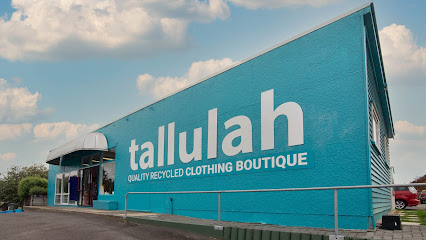
City Chic Tauranga
Explore stylish women's clothing at City Chic Tauranga, where fashion meets exceptional service in a vibrant shopping atmosphere.
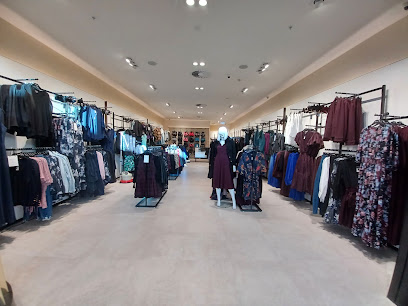
The Cottage
Discover fashionable and unique clothing at The Cottage in Tauranga, where local style meets charm and creativity.
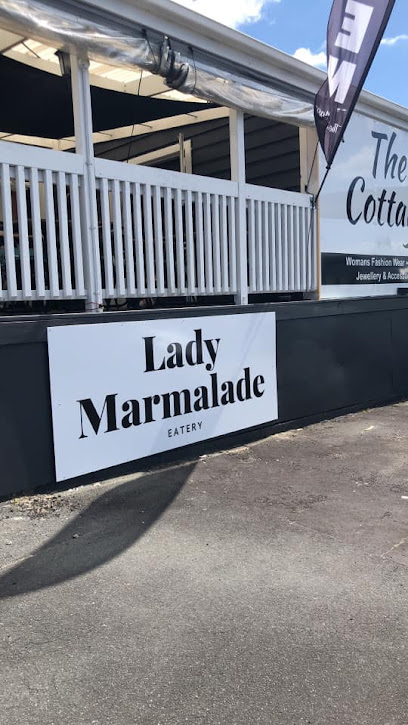
Footloose Shoes Tauranga
Discover stylish and comfortable footwear at Footloose Shoes Tauranga, your go-to shoe shop for every occasion in the heart of New Zealand.
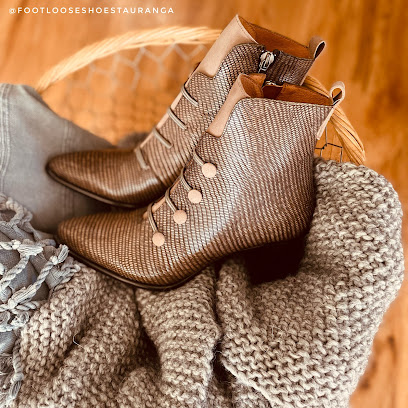
Essential bars & hidden hideouts
Astrolabe Brewbar
Experience the vibrant nightlife of Mount Maunganui at Astrolabe Brewbar, where craft beer, delicious food, and live music come together.
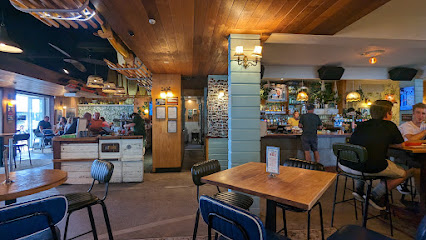
The Rising Tide
Experience the best of coastal dining at The Rising Tide, where fresh seafood meets stunning ocean views in Mount Maunganui.
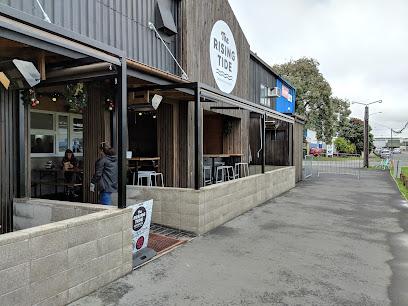
The Phoenix
Discover the vibrant flavors of Tauranga at The Phoenix, a gastropub that blends casual dining with a sophisticated menu and stunning waterfront views.
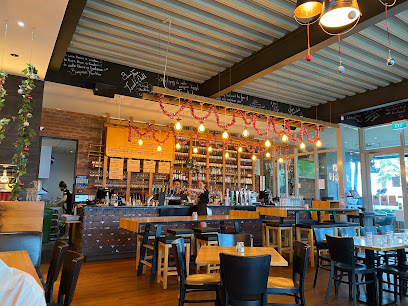
CBK Craft Bar & Kitchen Tauranga
Discover the flavors of New Zealand at CBK Craft Bar & Kitchen in Tauranga, where fresh seafood, succulent steaks, and crafted cocktails await.
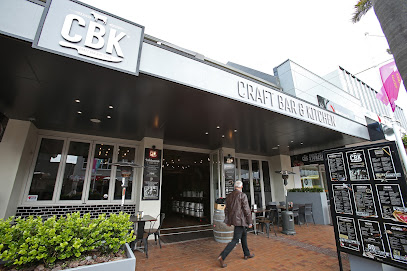
Worlds End
Experience the vibrant atmosphere and diverse menu at Worlds End, Tauranga's premier bar and restaurant.
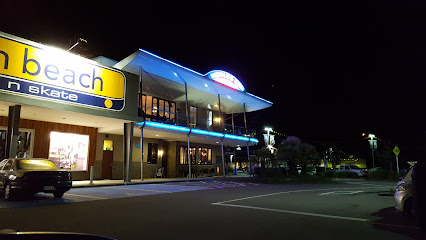
Crown & Badger
Discover the vibrant atmosphere and delicious offerings at Crown & Badger, a must-visit bar and pub in Tauranga, New Zealand.
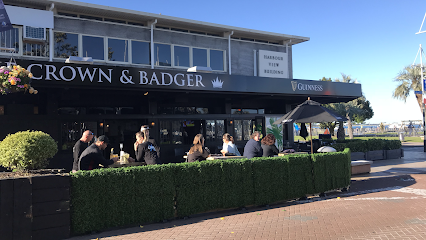
Tauranga Citizens Club
Discover the Tauranga Citizens Club, where great food, drinks, and a welcoming atmosphere meet in the heart of Tauranga South.
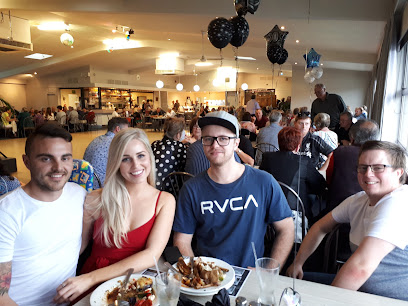
The Redoubt Bar and Eatery
Experience the flavors of New Zealand at The Redoubt Bar and Eatery in Tauranga, where delicious cuisine meets a warm atmosphere.
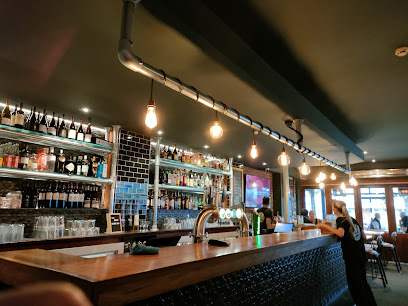
The Hop House
Discover an exceptional selection of craft beers and delicious meals at The Hop House, Tauranga’s top bar and grill for locals and tourists alike.
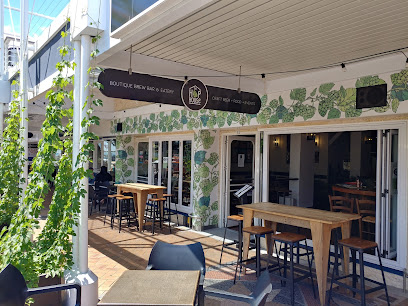
Cornerstone Bar & Eatery Tauranga
Discover the lively Cornerstone Bar & Eatery in Tauranga, where delicious food meets a vibrant atmosphere perfect for unwinding and socializing.
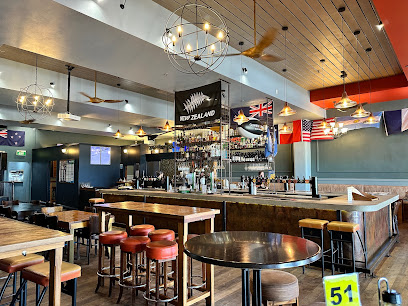
The Barrel Room
Discover the heart of Tauranga at The Barrel Room, where exceptional bistro cuisine meets a vibrant bar atmosphere, perfect for any occasion.
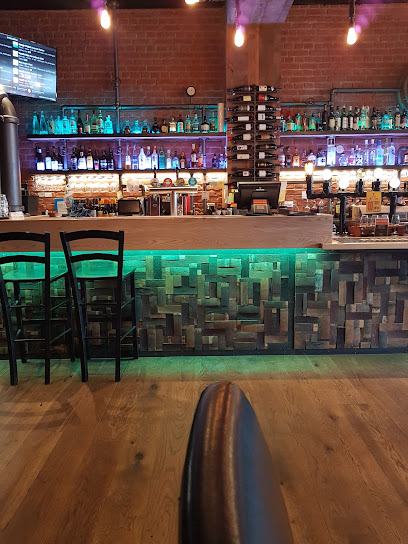
Tauriko Pub Co.
Experience a blend of traditional and contemporary dining at Tauriko Pub Co., a premier gastropub in Tauranga offering local flavors and craft beverages.
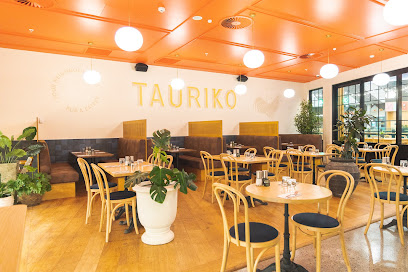
Miss Gee's Bar & Eatery
Discover the heartbeat of Tauranga at Miss Gee's Bar & Eatery, where vibrant atmosphere meets delightful cuisine and live entertainment.
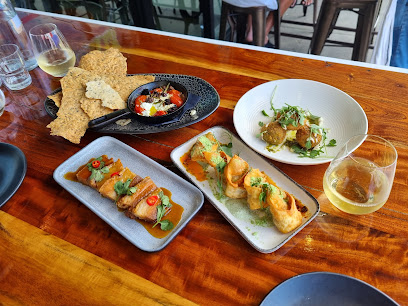
Jack Dusty's Ale House
Discover Jack Dusty's Ale House in Tauranga, a vibrant bar with delicious bites, refreshing drinks, and live music that captures the local spirit.
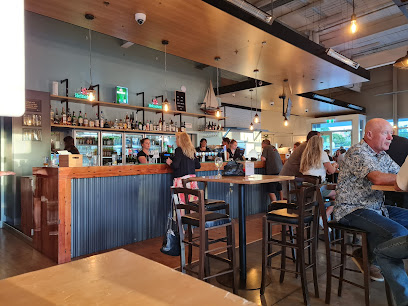
Local Phrases
-
- HelloKia ora
[key-ah or-ah] - GoodbyeHaere rā
[high-reh rah] - YesĀe
[eye] - NoKāo
[kah-oh] - Please/You're welcomeTēnā koe
[teh-nah koh-eh] - Thank youNgā mihi
[nah mee-hee] - Excuse me/SorryWhakamārama mai
[fah-kah-mah-rah-mah my] - How are you?Kei te pēhea koe?
[key teh pay-heh-ah koh-eh] - Fine. And you?Kei te pai. Ā, koe?
[key teh pie. eye, koh-eh] - Do you speak English?Kei te kōrero i te reo Pākehā?
[key teh core-eh-roh ee teh reh-oh pah-keh-hah] - I don't understandKaore au e mohio
[kah-oh-reh oh eh moh-hee-oh]
- HelloKia ora
-
- I'd like to see the menu, pleaseMe tirohia te menewa, tēnā
[meh tee-roh-hee-ah teh meh-ne-wah, teh-nah] - I don't eat meatKaore au e kai kau
[kah-oh-reh oh eh kai kow] - Cheers!Kia ora!
[key-ah or-ah] - I would like to pay, pleaseMe hiahia ki te utu, tēnā
[meh hee-ah-hee-ah kee teh oo-too, teh-nah]
- I'd like to see the menu, pleaseMe tirohia te menewa, tēnā
-
- Help!Āwhina!
[eye-fee-nah] - Go away!Haere atu!
[high-reh ah-too] - Call the Police!Karanga atu ki te Pirihimana!
[kah-rung-ah ah-too kee teh pee-ree-hee-mah-nah] - Call a doctor!Karanga atu ki te tohunga!
[kah-rung-ah ah-too kee teh toe-hoo-ngah] - I'm lostI wareware ahau
[ee wah-reh-wah-reh ah-how] - I'm illKei te he mate ahau
[key teh heh mah-teh ah-how]
- Help!Āwhina!
-
- I'd like to buy...Me hiahia ki te hoko...
[meh hee-ah-hee-ah kee teh hoh-koh] - I'm just lookingKei te titiro ahau
[key teh tee-tee-roh ah-how] - How much is it?E hia te utu?
[eh hee-ah teh oo-too] - That's too expensiveHe nui rawa te utu
[heh new-ee rah-wah teh oo-too] - Can you lower the price?Ka taea e koe te whakaiti i te utu?
[kah tie-ah eh koh-eh teh fah-kai-tee ee teh oo-too]
- I'd like to buy...Me hiahia ki te hoko...
-
- What time is it?He aha te wā?
[heh ah-hah teh wah] - It's one o'clockKotahi karaka
[koh-tah-hee kah-rah-kah] - Half past (10)Tekau ma rima
[teh-kow mah ree-mah] - MorningAta
[ah-tah] - AfternoonAhiahi
[ah-hee-ah-hee] - EveningPō
[poh] - YesterdayKei terā rā
[key teh-rah rah] - TodayĀnei
[eye-neh] - TomorrowĀpōpō
[eye-poh-poh] - 1Tahi
[tah-hee] - 2Rua
[roo-ah] - 3Toru
[toh-roo] - 4Whā
[fah] - 5Rima
[ree-mah] - 6Ono
[oh-no] - 7Whitu
[fee-too] - 8Waru
[wah-roo] - 9Iwa
[ee-wah] - 10Tekau
[teh-kow]
- What time is it?He aha te wā?
-
- Where's a/the...?Kei hea te...?
[key heh-ah teh] - What's the address?He aha te wāhitau?
[heh ah-hah teh wah-hee-tow] - Can you show me (on the map)?Ka taea e koe te whakaatu mai ki ahau?
[kah tie-ah eh koh-eh teh fah-kah-ah-too my kee ah-how] - When's the next (bus)?Āhea te tatau atu?
[eye-heh teh tah-tow ah-too] - A ticket (to ....)He tiki (ki ...)
[heh tee-key kee]
- Where's a/the...?Kei hea te...?
History of Tauranga
-
Tauranga, located in the Bay of Plenty region, has been a significant site for Maori settlement for over 700 years. The earliest inhabitants were the Ngāti Ranginui iwi, who established fortified villages called pā on the hills and headlands. The fertile land and abundant marine resources made it an ideal location for sustaining large communities.
-
In the early 19th century, European missionaries began arriving in Tauranga. The first mission station was established in 1835 at Te Papa by the Church Missionary Society. This marked the beginning of significant cultural exchanges and the introduction of Christianity to the Maori population. The missionaries played a crucial role in documenting Maori language and customs.
-
One of the most significant events in Tauranga's history is the Battle of Gate Pā, fought on April 29, 1864, during the New Zealand Wars. Maori forces, led by Rawiri Puhirake of the Ngāi Te Rangi iwi, constructed formidable fortifications at Pukehinahina (Gate Pā). Despite being heavily outnumbered and outgunned, the Maori defenders inflicted a significant defeat on the British troops. This battle is remembered for its strategic brilliance and the subsequent humanitarian treatment of wounded soldiers by the Maori.
-
Following the New Zealand Wars, Tauranga began to develop as a port city. The establishment of the Tauranga Harbour Board in 1882 marked the beginning of significant infrastructure development. The port's expansion facilitated trade and the export of agricultural products, particularly kiwifruit and avocados, which remain vital to the region's economy today.
-
The 20th century saw Tauranga transform into a major urban center. The construction of key infrastructure, including bridges, roads, and schools, supported this growth. World War II brought the construction of military installations, and the post-war period saw a boom in population and industry. The establishment of the Port of Tauranga in 1954 further accelerated economic growth, making it one of New Zealand's busiest ports.
-
In recent decades, there has been a strong focus on cultural revival and recognition of Maori heritage in Tauranga. Initiatives to preserve and promote Maori language, arts, and traditions have been undertaken. The city is now a vibrant blend of cultures, with numerous festivals, art galleries, and cultural centers celebrating its diverse heritage. Modern Tauranga is a bustling city known for its beautiful beaches, lively arts scene, and as a gateway to the Bay of Plenty's natural wonders.
Tauranga Essentials
-
Tauranga is well-connected and accessible via multiple modes of transportation. The nearest international airport is Tauranga Airport (TRG), which is located just a short drive from the city center. Domestic flights from major New Zealand cities like Auckland, Wellington, and Christchurch are available. If you're coming from overseas, you can fly into Auckland Airport (AKL) and then take a domestic flight or drive to Tauranga, which is about a 2.5-hour drive. Buses and trains also connect Tauranga to other parts of New Zealand, with InterCity and KiwiRail offering regular services.
-
Getting around Tauranga is convenient and straightforward. The city has a well-developed public transport system operated by Bayhopper, which includes buses that cover most areas. Taxis and ride-sharing services like Uber are also readily available. For those who prefer to drive, car rental services are abundant. Cycling is another popular option, thanks to Tauranga’s extensive network of bike lanes. Walking is feasible in the central city and along the waterfront, where many attractions are located.
-
The official currency in New Zealand is the New Zealand Dollar (NZD). Credit and debit cards are widely accepted in most establishments, including hotels, restaurants, and shops. ATMs are plentiful throughout Tauranga, and many places also accept contactless payments like Apple Pay and Google Wallet. It’s advisable to carry some cash for small purchases or in case you visit more remote areas where card facilities may be limited.
-
Tauranga is generally a safe destination for tourists. However, like any city, it’s important to stay vigilant. Avoid walking alone at night in poorly lit or unfamiliar areas. The central business district and waterfront areas are usually safe, but exercise caution in areas like Merivale and parts of Gate Pa, which have higher crime rates. Always keep an eye on your belongings, especially in crowded places.
-
In case of an emergency, dial 111 for police, fire, or medical assistance. Tauranga Hospital is the main medical facility in the area and offers comprehensive emergency services. Pharmacies are widely available for minor health issues. It’s highly recommended to have travel insurance that covers medical emergencies. For any assistance, the local police station can also provide help and support.
-
Fashion: Do dress comfortably and casually, as New Zealanders are generally laid-back about attire. However, avoid wearing beachwear in the city center. Religion: Do respect all religious sites. Remove your shoes and cover your head when visiting mosques and temples. Public Transport: Do be courteous to drivers and other passengers. Don’t eat or drink on public transport. Greetings: Do greet people with a friendly 'Hello' or 'Kia ora,' a traditional Maori greeting. Shaking hands is also common. Eating & Drinking: Do try local seafood and the famous New Zealand wines. Don't forget to tip in restaurants, although it’s not obligatory.
-
To experience Tauranga like a local, make sure to visit the Farmers Market on Saturdays for fresh, local produce. Take a walk along the Tauranga waterfront and enjoy fish and chips from one of the local vendors. Join a local fishing or sailing tour to appreciate the coastal beauty. For a unique cultural experience, attend a Maori cultural show or visit a Marae (Maori meeting ground) with a guided tour. Don’t miss out on visiting Mount Maunganui, a favorite spot among locals for hiking and beach activities.
Trending Landmark in Tauranga
-
Memorial Park
-
The Historic Village
-
Kaiate Falls
-
Kulim Park
-
Trinity Wharf Tauranga
-
McLaren Falls Park
-
Te Puna Quarry Park & venue 'The Gallery'
-
Salva D'or Italian Restaurant & Pizzeria
-
Waimarino Water & Adventure Park
-
Tauranga Art Gallery POP UP
-
DOCA cafe & eatery
-
Baycourt Community & Art Centre
-
Hairy Maclary and Friends Sculpture
-
The Redoubt Bar and Eatery
-
The Hop House
Nearby Cities to Tauranga
-
Things To Do in Rotorua
-
Things To Do in Hamilton
-
Things To Do in Taupo
-
Things To Do in Auckland
-
Things To Do in Gisborne
-
Things To Do in Napier
-
Things To Do in New Plymouth
-
Things To Do in Whanganui
-
Things To Do in Whangarei
-
Things To Do in Palmerston North
-
Things To Do in Paihia
-
Things To Do in Masterton
-
Things To Do in Wellington
-
Things To Do in Blenheim
-
Things To Do in Nelson











